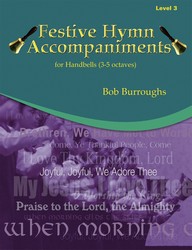- |
User Links
Men whose boast it is, that ye
Men whose boast it is, that ye
Author: James Russell Lowell (1843)Published in 61 hymnals
Audio files: MIDI
Representative Text
1 All whose boast it is that we
come of forebears brave and free,
if there breathe on earth a slave,
are we truly free and brave?
If we do not feel the chain
when it works another’s pain,
are we not base slaves indeed,
slaves unwilling to be freed?
2 Is true freedom but to break
fetters for our own dear sake,
and with leathern hearts forget
we owe humankind a debt?
No, true freedom is to share
all the chains that others wear,
and, with heart and hand, to be
earnest to make others free.
3 They are slaves who fear to speak
for the fallen and the weak;
they are slaves who will not choose
hatred, scoffing, and abuse,
rather than in silence shrink
from the truth they needs must think.
They are slaves who dare not be
in the right with two or three.
Source: Singing the Living Tradition #150
Author: James Russell Lowell
 Lowell, James Russell, LL.D., was born at Cambridge, Massachusetts, February 22, 1819; graduated at Harvard College, 1838, and was called to the Bar in 1840. Professor of Modern Languages and Literature (succeeding the Poet Longfellow) in Harvard, 1855; American Minister to Spain, also to England in 1881. He was editor of the Atlantic Monthly, from 1857 to 1862; and of the North American Review from 1863 to 1872. Professor Lowell is the most intellectual of American poets, and first of her art critics and humorists. He has written much admirable moral and sacred poetry, but no hymns. One piece, “Men, whose boast it is that ye" (Against Slavery), is part of an Anti-Slavery poem, and in its present form is found in Hymns of the Spirit, 18… Go to person page >
Lowell, James Russell, LL.D., was born at Cambridge, Massachusetts, February 22, 1819; graduated at Harvard College, 1838, and was called to the Bar in 1840. Professor of Modern Languages and Literature (succeeding the Poet Longfellow) in Harvard, 1855; American Minister to Spain, also to England in 1881. He was editor of the Atlantic Monthly, from 1857 to 1862; and of the North American Review from 1863 to 1872. Professor Lowell is the most intellectual of American poets, and first of her art critics and humorists. He has written much admirable moral and sacred poetry, but no hymns. One piece, “Men, whose boast it is that ye" (Against Slavery), is part of an Anti-Slavery poem, and in its present form is found in Hymns of the Spirit, 18… Go to person page >Text Information
| First Line: | Men whose boast it is, that ye |
| Author: | James Russell Lowell (1843) |
| Meter: | 7.7.7.7 D |
| Language: | English |
| Copyright: | Public Domain |
English
- A Book of Hymns for Public and Private Devotion (15th ed.) #437
- A Book of Hymns for Public and Private Devotion. (10th ed.) #437
- A School Service Book #d94
- A Selection of New Social Hymns #d11
- Hymnal for American Youth #P46
- Hymnal for Colleges and Schools #272
- Hymnal for Colleges and Schools. 3rd ed. #d176
- Hymns and Anthems adapted for Jewish Worship #98
- Hymns for Public Worship #574
- Hymns for the Celebration of Life #d130 10 shown out of 42
Welsh
Tune
SALZBURG (Hintze)The tune SALZBURG, named after the Austrian city made famous by Wolfgang Amadeus Mozart, was first published anonymously in the nineteenth edition of Praxis Pietatis Melica (1678); in that hymnbook's twenty-fourth edition (1690) the tune was attributed to Jakob Hintze (b. Bernau, Germany, 1622; d. B…
ST. GEORGE'S WINDSOR (Elvey)
George J. Elvey (PHH 48) composed ST. GEORGE'S WINDSOR as a setting for James Montgomery's text "Hark! The Song of Jubilee," with which it was published in Edward H. Thorne's Selection of Psalm and Hymn Tunes (1858). The tune has been associated with Alford's text since publication of the hymn in th…


 My Starred Hymns
My Starred Hymns






